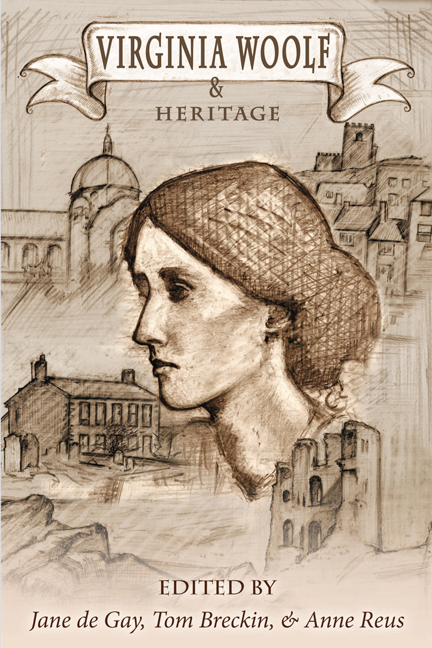Book contents
- Frontmatter
- Contents
- Introduction
- List of Abbreviations
- HERITAGE: A DEBATE
- HERITAGE, EDUCATION, AND MENTORING
- “The Very Centre of the Very Centre”: H. A. L. Fisher, Oxford, and “That Great Patriarchal Machine”
- Virginia Stephen's Uneasy Heritage: Lessons, Readers, and Class
- Teaching Virginia Woolf in Sin City: Vegas Entertainers and a New Feminist Heritage
- Out-takes from Upstarts: Virginia Woolf, Jane Ellen Harrison, and the Heritage of Dissent, or, “There She Wasn't?”
- Virginia Woolf 's Female Heritage: The Legacy of Anny Thackeray Ritchie, Woolf 's “Transparent Medium”
- HERITAGE SPACES
- LITERARY AND CULTURAL HERITAGES
- QUEER PASTS
- MODERNISM AND HERITAGE
- WRITING LIVES AND HISTORIES
- WOOLF'S LEGACIES
- FINALE
- Notes on Contributors
“The Very Centre of the Very Centre”: H. A. L. Fisher, Oxford, and “That Great Patriarchal Machine”
from HERITAGE, EDUCATION, AND MENTORING
- Frontmatter
- Contents
- Introduction
- List of Abbreviations
- HERITAGE: A DEBATE
- HERITAGE, EDUCATION, AND MENTORING
- “The Very Centre of the Very Centre”: H. A. L. Fisher, Oxford, and “That Great Patriarchal Machine”
- Virginia Stephen's Uneasy Heritage: Lessons, Readers, and Class
- Teaching Virginia Woolf in Sin City: Vegas Entertainers and a New Feminist Heritage
- Out-takes from Upstarts: Virginia Woolf, Jane Ellen Harrison, and the Heritage of Dissent, or, “There She Wasn't?”
- Virginia Woolf 's Female Heritage: The Legacy of Anny Thackeray Ritchie, Woolf 's “Transparent Medium”
- HERITAGE SPACES
- LITERARY AND CULTURAL HERITAGES
- QUEER PASTS
- MODERNISM AND HERITAGE
- WRITING LIVES AND HISTORIES
- WOOLF'S LEGACIES
- FINALE
- Notes on Contributors
Summary
While it's just possible you're not intimately acquainted with every contour of the illustrious career of Woolf 's first cousin Herbert Albert Laurens Fisher (1865–1940), you may have got wind of the key role his underwear played in twentieth-century British history. In 1943, British Intelligence launched “Operation Mincemeat,” which involved dropping the body of a fictitious Royal Marines officer, “Major William Martin,” into the sea off Spain in the hope that the false documents he was carrying would deceive the Germans about genuine Allied plans for the invasion of Sicily by making them believe an invasion of Greece was in the offing. The corpse of a Welsh vagrant was procured without difficulty, but as the bogus Major Martin was meant to be an officer of some social substance, he needed to be discovered wearing high-end woolen underclothes, but such garments, with wartime coupon rationing in full swing, proved difficult to source. It was at this point that J. C. Masterman, then a resourceful intelligence officer, recalled that the grandee H. A. L. Fisher had been knocked down and killed in a traffic accident three years previously, and he immediately contacted his widow to enquire whether Herbert's eminent smalls were still in his wardrobe. They were, and Mrs Fisher was glad to hand over her late husband's flannel vests and underpants, along with his superior handkerchiefs, in aid of the national war effort, and they would go on to play what must surely have been a crucial role in misleading the Germans (Smyth 100–102).
Fisher would have been proud of his contribution to the national war effort, for he'd been at the centre of the machinery of State between 1916 and the fall of the Lloyd George government in October 1922, and his sense of public duty never wavered. Being so close to the hub of public affairs, whether in Government or beyond it, Fisher both fascinated and intimidated Woolf, and her scornful unease with his kudos, as well as something very close to pride in his renown, seeps out time and again in her letters and diary.
- Type
- Chapter
- Information
- Virginia Woolf and Heritage , pp. 10 - 29Publisher: Liverpool University PressPrint publication year: 2017



